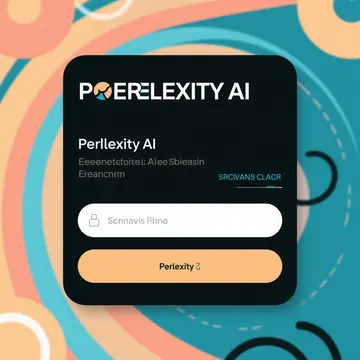As artificial intelligence redefines search and discovery, a growing debate has emerged: is Perplexity AI better than Google? Many users seeking faster, more accurate, and research-oriented answers are turning to Perplexity AI as an alternative to traditional search engines. But can it truly replace the search giant? In this deep-dive comparison, we evaluate key features, accuracy, user experience, and real-world applications of both platforms to help you decide which one meets your needs in 2025 and beyond.

What Is Perplexity AI and How Does It Work?
Perplexity AI is an advanced AI-powered search and chatbot tool that blends large language models (LLMs) with real-time internet access. Unlike Google, which returns a list of links ranked by algorithms, Perplexity directly answers questions using synthesized information from multiple sources. It's built on top of cutting-edge models like OpenAI’s GPT-4 and Anthropic’s Claude, combining conversational depth with real-time citations.
With a user interface similar to ChatGPT, Perplexity AI functions more like a research assistant than a traditional search engine. It can summarize articles, compare topics, and follow up on your queries naturally. This makes it particularly popular among researchers, students, and tech professionals.
Perplexity AI vs Google: Key Feature Comparison
Perplexity AI:
?? AI-powered conversational search
?? Real-time web access and citations
?? Follow-up questions and context retention
?? Focus Modes for academic, writing, or programming tasks
Google Search:
?? Index-based search with link ranking
?? Integrated services (Maps, YouTube, News)
?? Advertising-driven results
?? Stronger support for shopping, and local queries
User Experience: Simplicity vs Familiarity
Perplexity AI offers a clean, minimalist interface optimized for natural language interactions. You ask a question, and it gives a comprehensive, cited answer in seconds. The ability to ask follow-up questions with context awareness gives it an edge in deeper research tasks.
On the other hand, Google’s interface, while more cluttered with ads and snippets, remains familiar to billions. Its vast ecosystem—like Google Maps, Gmail, Google Docs, and YouTube—is unmatched. However, for users focused on knowledge over navigation, Perplexity AI may feel more efficient.
Answer Quality and Accuracy: Which One Is Smarter?
Perplexity AI pulls content from high-authority sources and uses LLMs to form structured responses. It typically includes citations, so users can verify the information directly. For academic and technical research, this is a major advantage.
Google’s results are broader and often include forums, low-quality blogs, or ads. While it excels in breadth and multimedia integration, it lacks the curated depth of Perplexity AI. That said, Google’s AI enhancements like SGE (Search Generative Experience) are evolving quickly to catch up.
Real-Time Use Cases: When Perplexity AI Outperforms Google
?? Academic Research
Students and scholars use Perplexity AI for summarizing research papers, citing journal sources, and generating comparative essays with credible references.
????? Developer Queries
Programmers prefer Perplexity AI when debugging code or finding precise documentation—thanks to its focused results and code-friendly output.
Additionally, Perplexity AI’s writing-focused tools, such as “Writing Mode” and “Academic Mode,” make it useful for bloggers, marketers, and content creators seeking structured drafts, meta descriptions, or citations in seconds.
Where Google Still Wins: Strengths You Shouldn’t Ignore
Despite Perplexity AI’s rise, Google is still the go-to for several reasons. It provides localized results better than any AI chat platform—perfect for maps, restaurants, real-time traffic, and weather. Google's AI-powered services (Gmail Smart Compose, Google Lens, Google Translate) are deeply embedded in users' daily lives.
Moreover, for product searches, e-commerce, and multimedia results, Google remains king. It's also much more effective at surfacing fresh news from a wide array of sources, whereas Perplexity may miss less-publicized content due to its reliance on select citations.
Is Perplexity AI Safe and Reliable?
Safety and reliability are increasingly important in AI search. Perplexity AI uses a transparent citation system to avoid misinformation and hallucinations. Its data is sourced in real time, reducing the risk of outdated responses. Unlike some AI chat tools that fabricate information, Perplexity encourages users to verify everything via source links.
While no AI platform is perfect, Perplexity AI offers a more verifiable experience compared to some LLM-based alternatives. In contrast, Google’s reliance on link indexing can sometimes surface outdated or SEO-gamed content.
SEO and Content Strategy: Which One Helps Writers More?
For marketers, content creators, and SEO professionals, both platforms serve distinct roles. Google is still essential for keyword research (via tools like Google Keyword Planner and Google Trends). However, Perplexity AI can help draft blog outlines, generate SEO titles, and suggest relevant keywords by analyzing real-time content.
In short, Google fuels the data, while Perplexity crafts it into usable formats. Together, they can form a powerful duo for writers and strategists.
The Verdict: Is Perplexity AI Better Than Google?
It depends on your needs. If you're looking for deep research, AI-powered summaries, and fewer distractions, Perplexity AI may be better than Google. It’s ideal for academics, developers, and writers who want fast, credible answers with minimal noise.
However, for everyday searches, maps, shopping, and local queries, Google still outperforms Perplexity AI by a wide margin. Both tools have their strengths—Google for traditional browsing and Perplexity for focused, intelligent conversation-based exploration.
Key Takeaways
? Perplexity AI is a strong research-oriented tool with real-time citations
? Google remains unmatched in local results, multimedia, and ecosystem integration
? Use Perplexity AI for writing, academic, and coding tasks
? Use Google for broader navigation, shopping, and breaking news
Learn more about Perplexity AI
